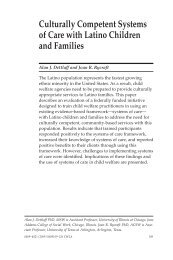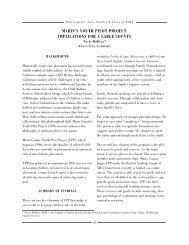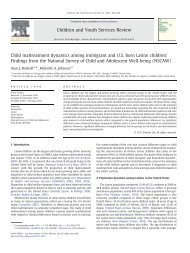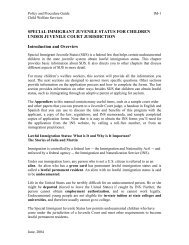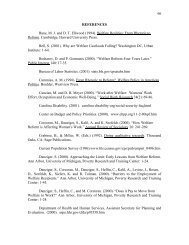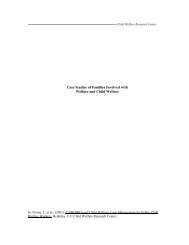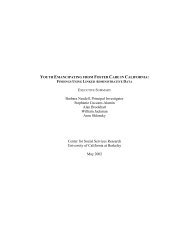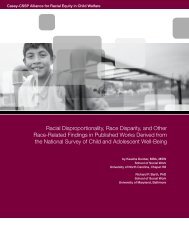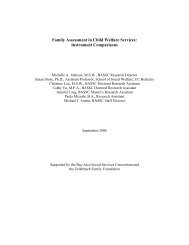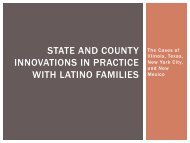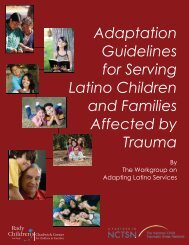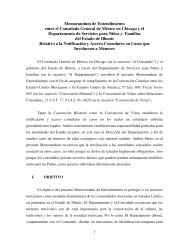Developing a Self-Assessment Toolfor Culturally - Office of Minority ...
Developing a Self-Assessment Toolfor Culturally - Office of Minority ...
Developing a Self-Assessment Toolfor Culturally - Office of Minority ...
Create successful ePaper yourself
Turn your PDF publications into a flip-book with our unique Google optimized e-Paper software.
Given these persistent disparities in health care, the provision <strong>of</strong> translated writtenmaterials and oral interpretation services (e.g., bilingual provider or interpreter) to LEPpopulations are essential components <strong>of</strong> CLAS (NLBHW 1996; NPHHI 1998).2.2 MCOs STUDY CONCEPTUAL FRAMEWORK REVIEW AND REVISIONThe first step in the development <strong>of</strong> the LPHA CLAS self-assessment tool was forthe project team, OMH staff, and the two project advisory groups to identify a CLASconceptual framework from which the self-assessment tool could be constructed. Sinceone <strong>of</strong> the objectives <strong>of</strong> the CLAS in MCOs study was to lay the groundwork andcontribute to the broader field by identifying areas <strong>of</strong> study that are essential for allassessments <strong>of</strong> CLAS in any health care setting, the project team and the PEP and PAGmembers recognized the applicability <strong>of</strong> the CLAS in MCOs study’s conceptualframework to construct the CLAS in LPHAs self-assessment tool. The study domainsidentified in the MCOs study’s conceptual framework comprised independent, mutuallyexclusive categories that allow examination <strong>of</strong> a broad range <strong>of</strong> services that can bedescribed as culturally and linguistically appropriate. The eight domains (identified asessential components <strong>of</strong> CLAS) included:! Organizational Governance;! CLAS Plans and Policies;! <strong>Culturally</strong> Inclusive Health Care Environment and Practices;! Quality Monitoring and Improvement (QMI);! Management Information Systems (MIS);! Staffing Patterns;! Staff Training and Development; and! Communication Support.The PEP and PAG members reviewed the conceptual framework used in the CLASin MCOs study (see Appendix B). Deliberations centered around the completeness <strong>of</strong> allpossible types <strong>of</strong> CLAS. In addition, lessons learned from the MCOs study were used tomodify and improve the framework. Members <strong>of</strong> the PEP and PAG recommended toadopt the CLAS in MCOs framework, and revise it to be appropriate for the LPHA setting.The (revised) CLAS conceptual framework for LPHAs is provided in Exhibit 2-2.One notable revision was made to the conceptual framework as a result <strong>of</strong> lessonslearned in the CLAS in MCOs study. A recommendation from the CLAS in MCOs studywas to replace the term “Patient Care” (Domain 3) with a more appropriate term such as“<strong>Culturally</strong> Inclusive Health Care Environment and Practices.” The term “patient care”was determined to be potentially misleading in that the measures under this domain are notCOSMOS Corporation, December 2003 2-10



